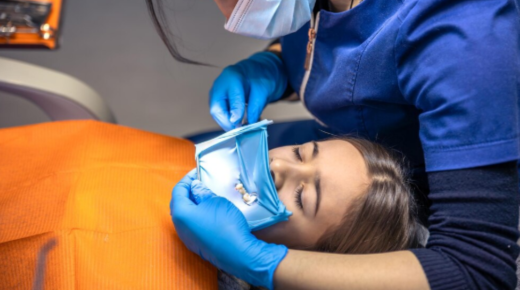
Dental emergencies can strike at any time, causing discomfort and anxiety. When you need urgent care, a dentist provides specialized attention to resolve your issue quickly. These situations often require immediate intervention to prevent further complications. Knowing what to expect from a dentist during emergency dental services can help ease your mind. Let’s explore how dentists handle such cases.
Understanding Emergency Dental Services
Emergency dental services are designed for urgent oral health issues that cannot wait until regular office hours. A dentist plays a critical role in addressing these problems promptly. If you experience severe pain, trauma, or infection, this service is vital. For instance, toothaches, broken teeth, or knocked-out teeth fall under this category. The dentist ensures timely treatment to alleviate symptoms and restore function.
Initial Assessment by the Dentist
When you visit an emergency dental clinic, the dentist begins with a thorough assessment. They examine your mouth to identify the root cause of the problem. Using diagnostic tools like X-rays, they gather detailed information about the affected area. This step is crucial for developing an appropriate treatment plan.
The dentist will ask questions about your symptoms and medical history. Sharing accurate details helps them make informed decisions. For example, if you have a fractured tooth, the dentist determines whether it affects the nerve. Their expertise allows them to pinpoint issues efficiently and propose suitable interventions.
Pain Management Techniques
Managing pain is one of the primary goals during emergency dental services. A dentist uses various methods to ensure patient comfort. Local anesthesia is commonly administered to numb the affected region before procedures. In some cases, over-the-counter medications may be recommended for temporary relief.
In addition to medication, the dentist might suggest relaxation techniques. Deep breathing or distraction methods can reduce anxiety during treatments. These strategies enhance the overall experience, making it less stressful for patients. By combining medical and psychological approaches, the dentist addresses both physical and emotional aspects of care.
Dentist’s Role in Stabilizing Your Condition
During emergency dental services, the dentist works diligently to stabilize your condition. Their main objective is preventing further damage or complications. For example, if you’ve lost a tooth due to trauma, the dentist attempts reimplantation if possible. Immediate action increases the chances of successful recovery.
Common Procedures Performed During Emergency Dental Services
Several procedures form part of emergency dental services offered by a dentist. One common treatment involves root canal therapy for infected teeth. This process removes damaged tissue and saves the natural structure. Another frequent intervention includes repairing chipped or cracked teeth using bonding materials. These techniques are essential components of emergency dental services.
Follow-Up Care Recommended by the Dentist
After receiving emergency dental services, follow-up care is essential for complete recovery. The dentist outlines specific instructions to promote healing. This may involve avoiding certain foods, practicing meticulous oral hygiene, or scheduling additional appointments. Adhering to these guidelines ensures optimal results.
They emphasize the importance of preventive measures to avoid future emergencies. Regular checkups and cleanings play a significant role in maintaining oral health. By fostering a strong relationship with your dentist, you can address minor issues before they escalate. This proactive stance contributes to long-term well-being.
Conclusion
A dentist plays a pivotal role during emergency dental services. Their expertise ensures prompt and efficient care for unexpected oral health challenges. From initial assessments to follow-up recommendations, they focus on delivering exceptional service. Understanding what to expect from a dentist in these situations empowers patients to seek help confidently.



